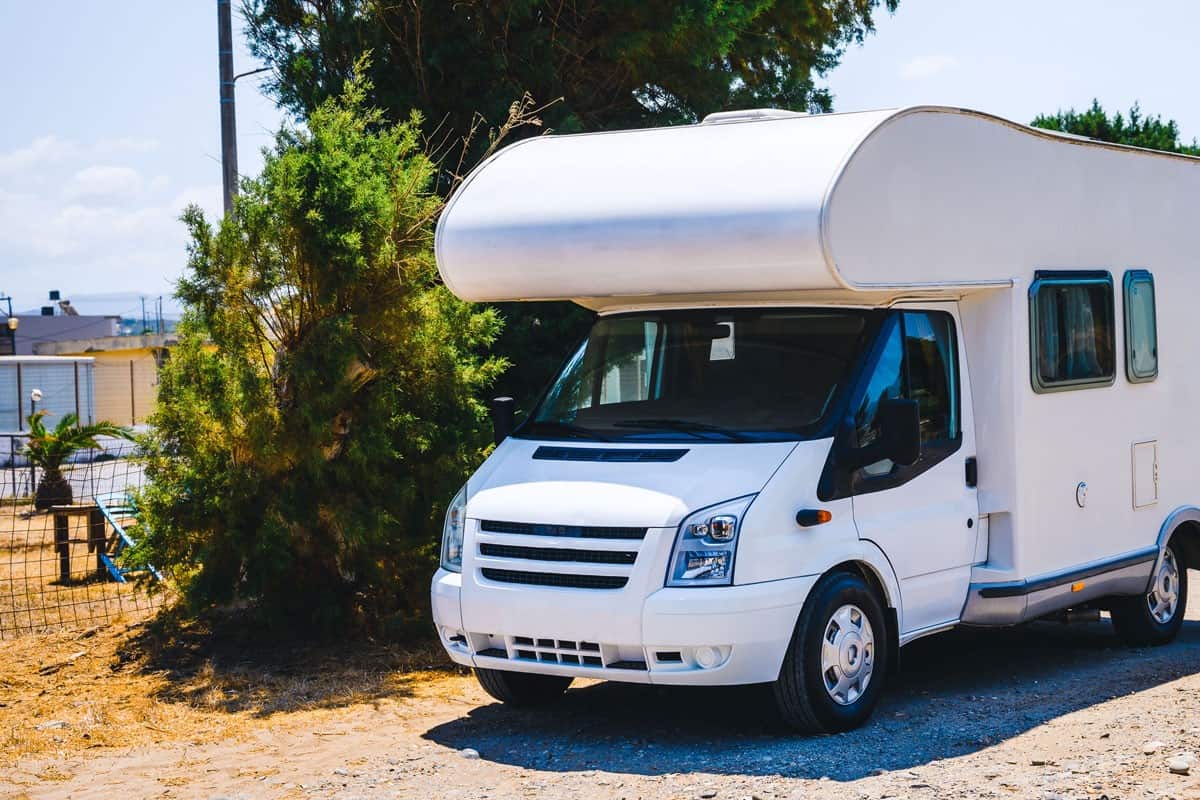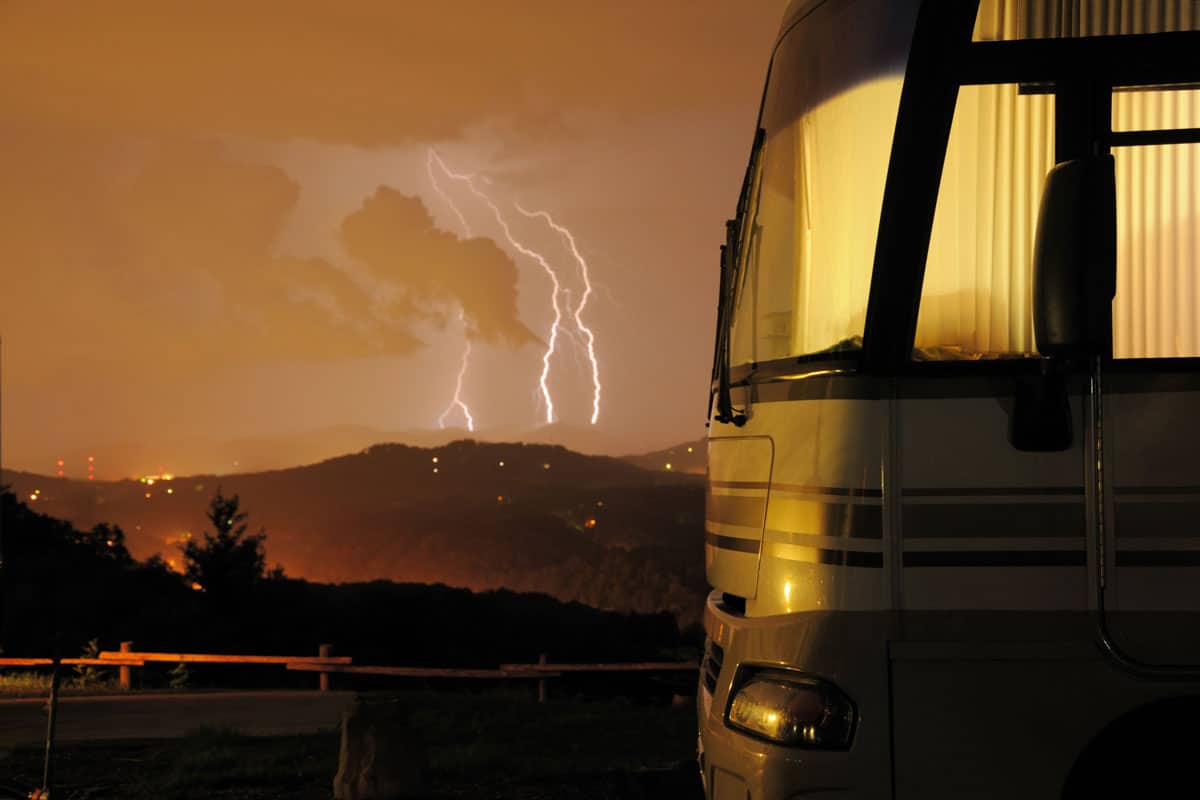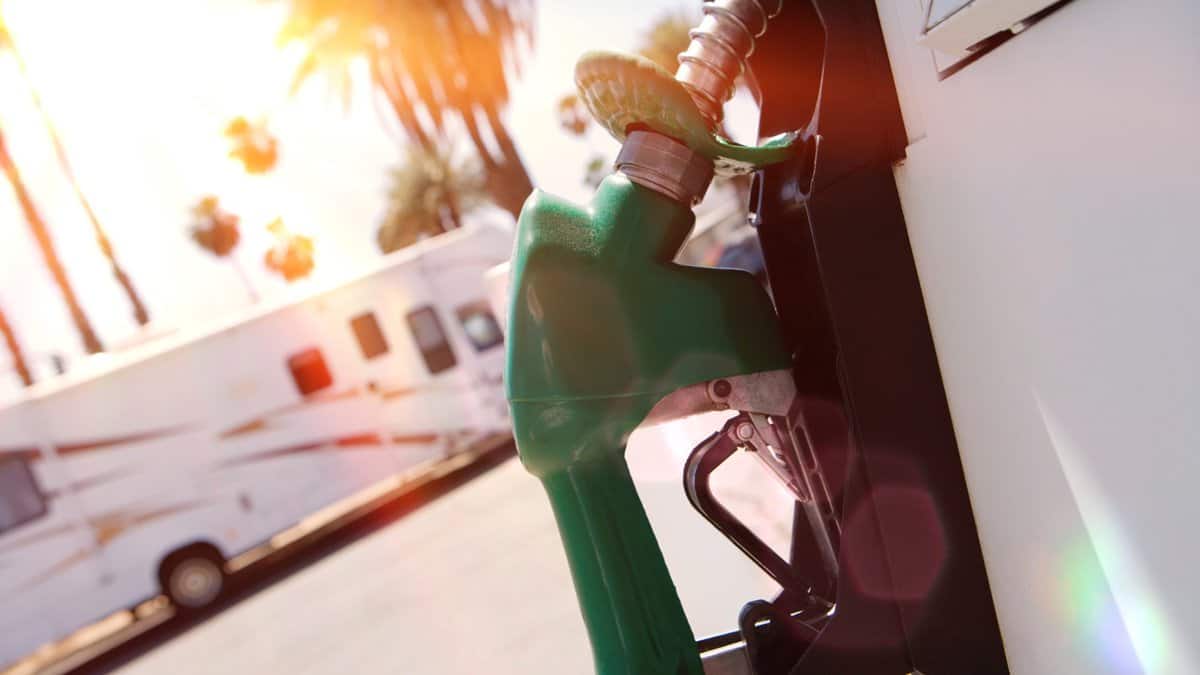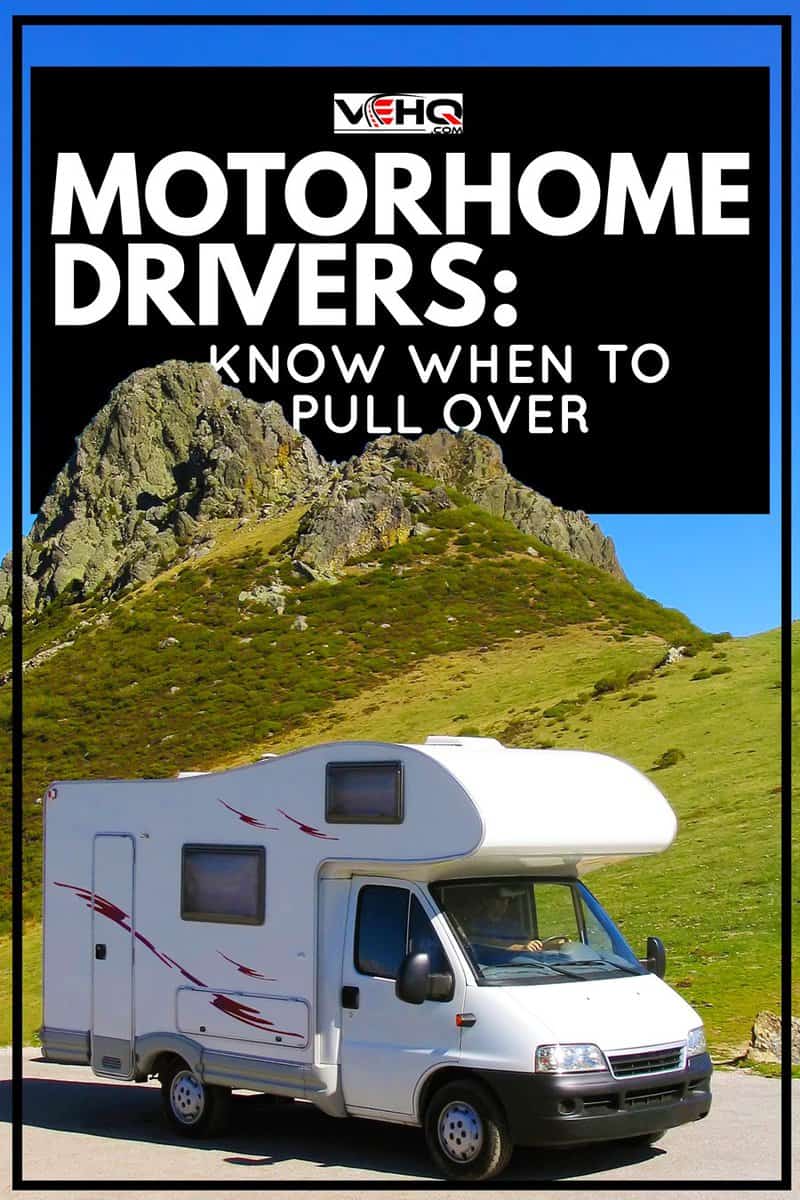Have you ever been cruising down the highway in your motorhome and suddenly realized you needed to stop? But it's important to pay attention to signs that you need to pull over and stop.
Yawning, hunger, or weird engine noises are cues to find a safe place to park. Don't wait until there's an emergency. Be smart and proactive.
Pull over when your body or vehicle says it's time for a break. Staying alert on the road means you'll have many more miles of happy motorhome memories ahead.

Reason #1: You're Getting Sleepy
If your eyes keep closing while driving, it's time to stop. Pull over somewhere safe and switch drivers, or take a nap.
Driving while really tired is dangerous. It's easy to lose control of the vehicle. A short rest will help you focus again so you can drive safely. Don't take risks by driving when you're exhausted. Find a place to park and get some sleep. Your life and others depend on it.
Reason #2: Weird Noises
If you hear odd clanking, rattling or other weird noises while driving, don't ignore them. Pull over as soon as you can safely.
Unusual sounds from your RV likely mean something is wrong. It could be a flat tire, a loose part, or a bigger problem. Stopping to check it out early can prevent a breakdown or accident down the road.
Reason #3: Someone is Tailgating You
If another driver gets too close to your RV's back end, don't get angry. Stay calm and pull over when you can to let them pass.
Signaling and pulling over is the smart move. It gets the tailgater away from you and refocuses on your safe driving. Don't let their road rage ruin your trip. Maintain the peace by letting them go their way.
You'll be happier continuing your journey without an aggressive driver on your bumper. Make the mature choice and pull over. Your safety is what matters.
Reason #4: Bad Weather Hits
When driving conditions get dangerous due to weather, get off the road. Find a rest stop or parking lot and wait it out.
Heavy rain, snow, high winds, or limited visibility make RV driving risky. Your large vehicle is hard to control in severe conditions. Attempting to drive through a storm could lead to an accident, getting stuck, or worse.
It's not worth the gamble to keep going. Pull over and be patient until the weather improves. Then, you can continue safely.

Reason #5: Something Feels Wrong
If driving your RV feels weird or off, listen to your gut. Pull over and check for issues. Little problems like underinflated tires can make handling feel strange. Low tires lead to blowouts. Overinflated tires reduce traction.
Or it could be a brake, engine or other mechanical troubles. Stop to inspect and fix problems right away. Catching them early prevents breakdowns or accidents down the road.

Reason #6: You're Low On Fuel
Don't let your gas tank run too low. Stop to refuel when it hits 1/4 tank. Running out of gas leaves you stranded. Fill up at truck stops when possible - they have more room.
If a station is your only option, take it slow and carefully maneuver your large RV. Know your RV's tank size so you can plan. Stop every X miles to top off. Don't get stuck with an empty tank in the middle of nowhere.
Find out the size of a motorhome gas tank and plan your refueling stops with confidence — click here for the details.
Reason #7: Your Trailer Is Swaying
If the trailer you're towing starts swinging side to side, it's dangerous. Carefully slow down and pull over. When a trailer sways, gently brake. Don't make sudden steering movements. Use your brake controller if you have one to stabilize it.
Once stopped, figure out why it swayed - improper loading, worn parts, etc. Fix the cause. If it keeps happening, have a professional inspect it. Swaying trailers can lead to jackknifing or rollovers.
Reason #8: Check Your Mirrors
Properly adjusted mirrors let you see behind your RV. Without them, you're driving blind. Misaligned mirrors leave you unaware of issues like tailgaters, swaying trailers, or blind spots. Don't just set them once - check often.
Make mirror checks part of your routine, especially before getting back on the road. If visibility seems off, pull over and re-angle them. Clear mirrors ensure you can drive safely.
Reason #9: Law Enforcement Instructions
See those flashing lights behind you? It's never a good feeling, but stay calm. Safely pull over when signaled by police or other law enforcement.
Remain in your vehicle unless instructed to exit. Be cooperative and honest if questioned. Arguing or resisting will only make things worse.
Getting pulled over is inconvenient, but following officer commands is vital. Don't escalate the situation by debating on the roadside. You can have your day in court later if needed.
Make the stop quick and straightforward by complying with instructions. Be respectful and keep your hands visible. Soon, you'll be back on the road and on your way.
Why Stopping Is So Important
Knowing when to stop your RV is critical for safe driving. Don't ignore the warning signs covered in these tips. They prevent accidents and disasters.
Being tired, vehicle issues, bad weather, aggressive drivers - these require pulling over. Stopping keeps you safe in dangerous conditions.
Don't think of it as an inconvenience. It's a smart move that protects you and allows your journey to continue.
We want to hear your stories. When did you last have to pull over? Why did you stop? Sharing helps other RVers know what to watch for.
Before you hit the road, discover the 9 essential things every motorhome driver should know — it's your roadmap to a safe and enjoyable journey.

